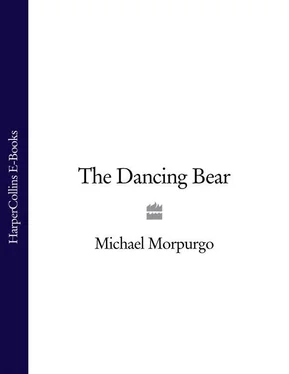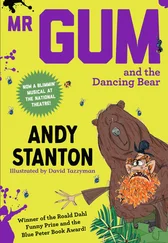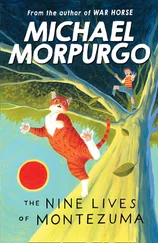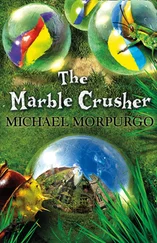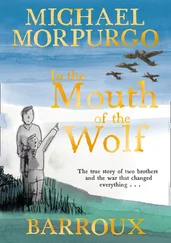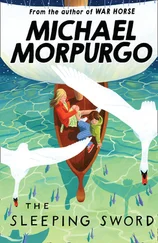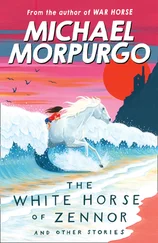The Dancing Bear
Michael Morpurgo
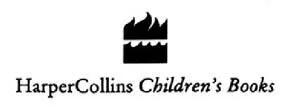
For Gina and Murray, with thanks
Cover Page
Title Page The Dancing Bear Michael Morpurgo
Dedication For Gina and Murray, with thanks
THE DANCING BEAR
Also by Michael Morpurgo
Copyright
About the Publisher
I was born in this mountain village longer ago than I like to remember. I was to have been a shepherd like my grandfather and his grandfather before him, but when I was three, an accident left me with a limp. Shepherding wasn’t ever going to be possible, so I became a teacher instead.
For nearly forty years now, I have been the schoolmaster here. I live alone in a house by the school, content with my own company and my music. To play my hunting horn high in the mountains, and to hear its echo soaring with the eagles, is as close as I have been to complete happiness.
Yet I suppose you could say that I became a sort of shepherd after all: I shepherd children instead of sheep, that’s all. I teach them, and I’m a kind of uncle to them even after they’ve left school. They think I’m a bit eccentric – I play my horn and I talk to myself more than I should. Like all children, they can be a bit cruel from time to time. They call me “Three Legs” or “Long John Silver” when they think I’m not listening, but you have to put up with that.
We are people whose lives are ruled by sheep, by the seasons, and above all by the mountains. We make cheese here, sheep’s cheese. You won’t find a better cheese anywhere, that’s a promise. Almost all the families have a flock of sheep which they graze in the fields around the village, but when the snows clear, they take them up on to the mountain pastures for the sweet summer grass. The cows go too, and the horses and the pigs.
Snow cuts us off for at least three months of every winter, sometimes more, and then we are left to ourselves. But it’s a peaceful place at any time of year. The winding road from the valley ends in the village square. Beyond us are the mountains, and beyond the mountains, the sky. We are a world of our own and we like it that way. We are used to it. The life is hard but predictable. People are born, people die. We have our blizzards and our droughts, no one ever has enough money and the roof always needs repairing.
Nothing ever really disturbed our life until some ten years ago, when a small bear came down out of the mountains. Nothing was ever to be the same again.
Roxanne was about seven years old at the time. An orphan child, she lived with her grandfather, who was a dour and unloving man. She was a solitary girl, but never lonely, I think. At school, she appeared to be a dreamer, a thinker. After school, with her grandfather busy in his fields, she would often wander off by herself, watching rabbits, maybe, or following butterflies. She was forever going missing. Then her grandfather would come shouting around the village for her. When he found her, he would shake her or even hit her. I protested more than once, but was told to mind my own business. A friendless, bitter old man, Roxanne’s grandfather was interested in nothing unless there was some money in it. Roxanne was a nuisance to him. She knew it – and everyone knew it. But he was the only mother and father she had.
It was a Sunday morning in April. We were in the cafe before lunch. The old man was going on about Roxanne again, and how she ate him out of house and home. He’d had a bit too much to drink, I think, but then he was often that way.
“Gone off again, she has,” he grumbled. “God knows what she gets up to. Nothing but trouble, that girl.”
Just then we heard shouting in the village square and, glad of any diversion, we all went out to look. Roxanne was staggering towards us, clutching a bear cub in her arms, with its arms wrapped around her neck. She’d been scratched on her face and on her arms, but it didn’t seem to bother her. She was laughing and breathless with joy.
“Bruno!” she said. “He’s called Bruno. I was down by the stream. I was just throwing sticks and I felt something stroking my neck. I turned round and there he was. He patted my shoulder. He’s my very own bear, Grandpa. He’s all alone. He’s hungry. I can keep him, can’t I? Please?”
If we hadn’t been there – and half the village was there by now – I think the old man might have grabbed the bear cub by the scruff of the neck and taken him right back where he came from.
“Look at him,” he said. “He’s half starved. He’s going to die anyway. And besides, bears are for killing, not keeping. You know how many sheep we lose every year to bears? Dozens, I’m telling you, dozens.”
Some people were beginning to agree with him. I looked at Roxanne and saw she was looking up at me. Her eyes were filled with tears.
“Maybe” – I was still thinking hard as I spoke – “if you kept him, you know, just for a while. It wouldn’t cost much: some waste milk and an old shed somewhere. And just suppose” – I was talking directly to the old man now – “just suppose you made ‘bear’ labels for your honey jars – you could call it ‘Bruno’s Honey’. Everyone would hear about it. They’d come from miles around, have a little look at the bear and then buy your honey. You’d make a fortune, I’m sure of it.”
I’d said the right thing. Roxanne’s grandfather had his beehives all over the mountainside, and everyone knew that he couldn’t sell even half the honey he collected. He nodded slowly as the sense of it dawned on him. “All right,” he said. “We’ll try it. Just for a while, mind.”
Roxanne looked at me and beamed her thanks. She went off with Bruno, followed by an excited cavalcade of village children who took turns to carry him.
That afternoon, they made him a bed of bracken at the back of one of the old man’s barns, and fed him a supper of warm ewe’s milk from a bottle. They dipped his paw in honey and made him suck it. After that he helped himself. Later when I passed by the barn on my evening walk, I heard Roxanne singing him to sleep. She sang quite beautifully.
In no time at all, Bruno became one of the village children; nobody was afraid of him, as he was always gentle and biddable. He’d go splashing with them in the streams; he’d romp with them in the hay barns; he’d curl himself up in a ball and roll with them helter-skelter down the hillsides. He was more than a playmate, though. He was our mascot, the pride of the village.
To begin with, he never strayed far from Roxanne. He would follow her everywhere, almost as if he were guarding her. Then one day – and by this time, Roxanne was maybe ten or eleven – he broke out of his barn and followed her to school.
I was sitting at my desk sharpening pencils and the class was settled at its work, when Bruno’s great panting face appeared at the window, tongue lolling out and drooling. Roxanne managed to shut him in the woodshed where he stayed till lunch, happily sharpening his claws on the logs.
Not much school-work was done that day.
After that Bruno was forever escaping from his barn and turning over the dustbins in the village. He liked dustbins.
But as the bear grew bigger and stronger, there were those in the village who began to worry – and I was one of them. He went walkabout again not long afterwards, and all the children were out looking for him. Tiny – the smallest boy in the school – came upon Bruno outside the village shop, his head in the dustbin. Tiny called, and Roxanne and the others came running. By the time they arrived, Bruno was up on his back legs and Tiny was tickling his tummy. Bruno swiped playfully at Tiny but it was enough to send him reeling backwards, hitting his head on a wall as he fell. The cut needed eight stitches. Roxanne swore it wasn’t Bruno’s fault, that it was just an accident. So did Tiny, so did they all.
Читать дальше
